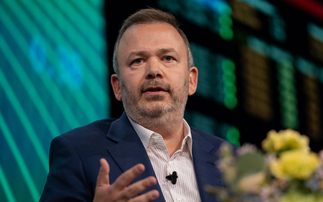Gervais Williams, senior executive director of Miton, has warned the next financial crisis will be worse than the last due to the lack of stimulus measures available.
Speaking to investors, Williams, who runs a number of strategies including the £383m Diverse Income trust with Martin Turner, said the government and the Bank of England would lack options next time compared to during the 2007-08 financial crisis.
Williams said: "There will be another crisis and there is no downside protection this time. We cannot cut interest rates, we have used up our stimulus.
"If we need to do more quantitative easing [QE], it will not make much difference as we have been using it since 2009 and it is no longer an emergency measure."
Soros warns EU of 'existential crisis' ahead of Brexit talks
QE was implemented in March 2009 when the BoE initially used £75bn to buy gilts. This programme has since been increased and now stands at £435bn, having been extended most recently in August 2016.
Looking at the government's options, Williams said it was unlikely it would be willing to increase the budget deficit either as this was at £6.7bn in May.
MPC member warns BoE won't be able to forecast next financial crisis
In the 2016-17 financial year, the budget deficit was 2.4% of GDP but is expected to widen this year to 2.9%, according to the Office for Budget Responsibility.
Williams added: "It is a case of 'just keep swimming' because there won't be much the government can do and no one will come to rescue you. There will be a lot more companies going bust this time than there were in 2009."
As a result, Williams said it is important to consider safe companies with strong balance sheets.
His multi-cap trust has a higher allocation to the FTSE 100 than in the past at 17%, while exposure to FTSE 250 companies has fallen to 17% from as high as 28%.
Jim Rogers: We are going to have the worst economic problems of our lifetime
"The valuation stretch is much more extreme than it has been in the last 30 years," Williams said.
"You have the massive growth stocks, such as Fevertree, which have done well, but you have companies at the bottom of the market that are massively overlooked. There are terrific opportunities at the bottom of the market."
Follow Investment Week on LinkedIn















